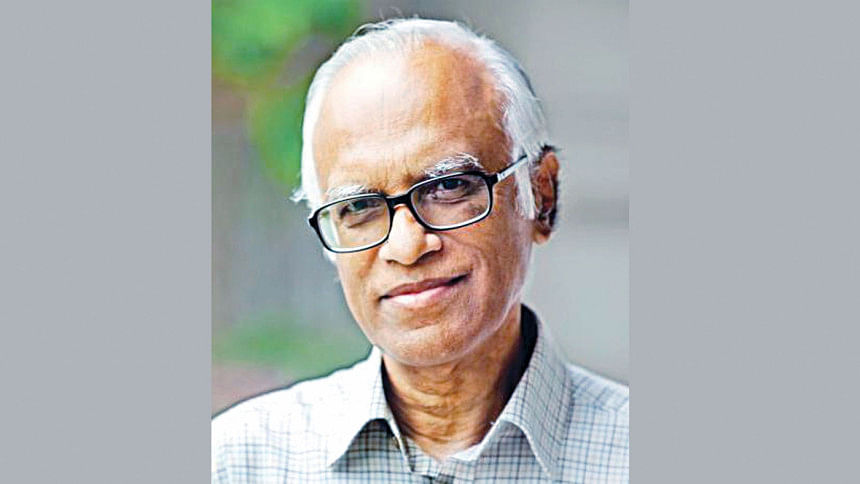Complex global policy emerging as key challenge for Bangladesh: Wahiduddin

Bangladesh will soon face challenges in dealing with external economic diplomacy given the current global economic scenario, according to experts.
"The country's main challenge will be navigating external economic policies in an increasingly complex global order," said Wahiduddin Mahmud, a former advisor to the caretaker government.
However, this will not be easy for a least developed country (LDC) like Bangladesh, he added while addressing the inaugural session of the "First Development Studies International Conference- DSIC 2024".
The Department of Development Studies at the University of Dhaka and Daily Bonik Barta jointly organised the conference at the Pan Pacific Sonargaon in Dhaka yesterday.
Mahmud said one of the main challenges for Bangladesh is maintaining balanced economic relations with countries like China and the US. This is because Bangladesh depends on the industrialised West for access to export markets while China provides goods at competitive prices alongside funds.
Besides, there are regional powers competing to promote their own interests in Bangladesh, which further complicates the situation.
Mahmud also said another big challenge for LDCs like Bangladesh is aligning the domestic political interest with a strategy to secure maximum global economic benefits.
"If a regime has legitimacy in the eyes of its own people, is confident in itself because of that, and its policies have widespread public support, then it is likely to compromise its external global economic interest because of its own domestic political calculation," he added.
Against this backdrop, Mahmud said there is no need to compromise with the country's interests to settle domestic political issues.
One of the reasons for the success of Vietnam's external economic relations and government policies is that they have strong public support and can be scrutinised through public discussions.
But if the government is not legitimate in the eyes of the people, then it is not possible to freely discuss, criticise, or debate any of its economic policies, particularly involving foreign negotiations, he added.
Speakers at the event also said that up-skilling and increasing productivity are important for the country's development.
Joe Devine, associate pro-vice chancellor (research) at the University of Bath in the UK, said the facilities provided by the government in certain areas of Bangladesh are not seen as human rights, but favours.
"And although poverty is decreasing in some districts, others are gradually getting poorer. The main reason for this is that government facilities are not given as rights, but as privileges," he added.
Waseqa Ayesha Khan, state minister for finance, said Bangladesh has made significant progress compared to many Asian countries despite the global economic crisis.
She said the current government has been able to implement various mega-projects, such as the Padma Bridge. Significant progress has also been made in increasing per capita income, she added.
Shirin Sharmin Chaudhury, speaker of the National Parliament, was present as chief guest at the event, which was chaired by ASM Maksud Kamal, vice-chancellor of the University of Dhaka.
Mushtaq Khan, a professor of economics at the University of London in the UK, and RR Ganzevoort, rector of the International Institution of Social Studies in New Zealand, also spoke.

 For all latest news, follow The Daily Star's Google News channel.
For all latest news, follow The Daily Star's Google News channel. 








Comments